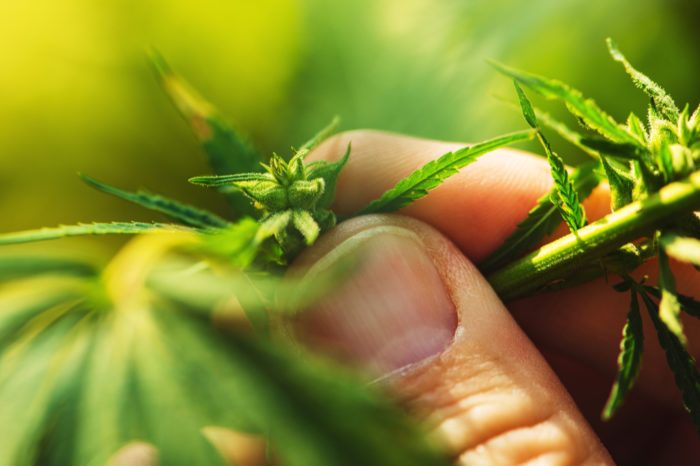Government of Quebec says “Non” to edibles.
Editor’s Note: This article has been archived.
Recreational cannabis has been legal throughout Canada since October 2018. However, edibles are currently not available for legal sale. The government plans to relax the restriction this October. However, each province will have the power to regulate edibles as they see fit. Using these powers, the Government of Quebec has made it clear that they won’t allow edible sales in the French-speaking province.
The provincial government has proposed a regulation to ban the sale of cannabis products which are “attractive to minors.” This means no edibles, which could appeal to kids. This includes cannabis brownies, gummies, chocolate, candies, and ice cream.
Beyond edibles, the provincial government also plans to prohibit any additives. These would alter the scent, flavor, or color of cannabis products. The provincial government will allow limited sales for edible products that don’t appeal to kids, like oils, and butter.
“We believe that the first thing we need to do is to protect our children,” said Lionel Carmant, Quebec’s junior health minister.

Carmant notes an increase in the number of “intoxications” reported at children’s hospitals in Quebec. These have come since cannabis legalization and include the Montreal Children’s Hospital and the Centre Hospitalier Universitaire Sainte-Justine. Carmant cites figures from Colorado. These show that 10 percent of all intoxications came after consumption of edibles, which comprise just 0.3% of cannabis sales.
The Quebec government’s “no edibles” stance is consistent with its cautious approach to cannabis legalization. The province has already set into motion plans to raise the legal age for cannabis consumption in Quebec to 21, starting Autumn 2019.
U.S. Enact Common Sense Edible Regulations
Concerns around edibles have led some U.S. states to enact regulations protecting children.
Colorado requires that all cannabis packaging feature a “universal symbol” indicating that the product contains cannabis. Packaging must also include a warning statement below the symbol: “Contains Marijuana. Keep out of the reach of children.” Individual servings of edibles must also be marked with the universal symbol. These consist of 10mg of THC in recreational products. Furthermore, companies must not bill products as “candy” or “candies.”
Washington state also restricts sales of edible products which appeal to kids. Edibles must conform to strict regulations around color and shape, meaning that brightly colored candies resembling regular confectionery can’t be sold. Washington initially planned to outright ban sales of cannabis candies, but reversed the decision following an outcry from businesses and consumers.
Canada, including Quebec, already has strict packaging laws. For example, the below is a regulation package:

Are Edibles Harmful?
As with all cannabis products, edibles are very unlikely to seriously harm anyone. However, in comparison to smoked cannabis, the risks of adverse effects do increase. The issue comes down to the pharmacokinetics of cannabis edibles, i.e. the way they’re processed in the human body.

When you inhale cannabis from a joint, pipe, or vaporizer, the effect is near-instant. So, it’s pretty easy to regulate consumption, You take a puff and wait 15 minutes to see how it affects you. Then you take another as needed.
Edibles, however, can be pretty unpredictable. How long the effects take to come on depends on whether you’ve eaten recently, as well as each individual’s metabolism. Some find that edibles take hours to start working, whereas others start to feel the effects in as little as 30 minutes.
It’s fairly common for consumers to notice no effect and think it’s not working. So, you eat a little more and before you know it, you’ve consumed far too much. For consumers with low tolerance to cannabis, relatively small doses can produce a powerful – and uncomfortable – experience. Taking too many edibles can resemble a psychedelic trip, with side effects like anxiety, panic attacks, irregular heartbeat, nausea, and even hallucinations.
Edible Bans Are a Wrongheaded Response
The Quebec government’s no edibles stance might come from genuine concern for the health of the province’s kids. Still, it’s hard to see how it will work in practice. Edibles have been available in Canada for years. The upcoming legalization of sales in the rest of the country will only make them more accessible, including in Quebec.
Given the lack of border controls between Canadian provinces, it’s clear that edibles are going to find their way into Quebec, and consumers who want them will get them. However, the black market isn’t known for following the rules – they’ll be sold outside of legal cannabis stores, and won’t be subject to labeling requirements, nor age verification.
If Quebec is really serious about keeping edibles out of the hands of kids, it would make a lot more sense to follow the example of Colorado and Washington. The provincial government should enact common sense regulations. These could control dosage, packaging, and appearance of available products, as well as requiring strict age verification in cannabis stores.
“Think of the children” scaremongering has done precisely nothing to keep young people away from cannabis throughout the history of prohibition. If anything, it contributes to distrust of authority.
“No edibles” blanket bans can be good vote winners for anti-drug politicians, but the best way to keep kids safe around cannabis is education. Apparently, nobody told le Gouvernement du Québec.





